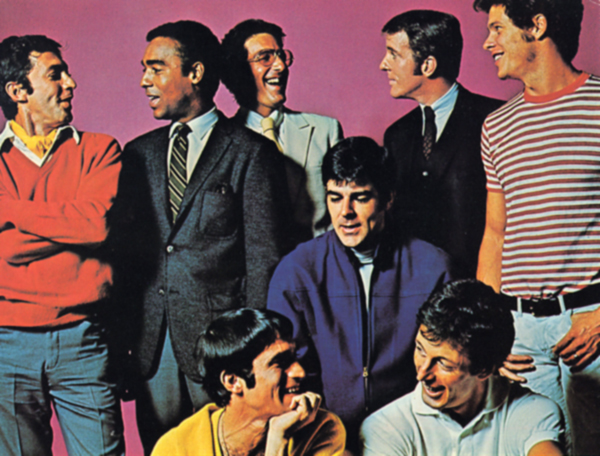|
Reviews of Recent Independent, Foreign, & Documentary Films in Theaters and DVD/Home Video

MAKING THE BOYS One of the missions of Making the Boys hits its mark; the film credibly backs up the relevancy and landmark stature of Mart Crowley’s 1968 off-Broadway hit, The Boys of the Band. On the other hand, the engaging documentary stands on less firm footing in rehabilitating the play itself, which quickly fell out of favor after its initial success. If you haven’t seen the play or the 1970 film adaptation, Making will assuredly convince you that the original production wasn’t a footnote, a mere stepping stone in gay visibility, but you won’t get what all of the ruckus Crowley raised was about. Simply put, the play focuses on a “bunch of queens getting drunk,” per actor Cheyenne Jackson. No one could have summed it up better. Boys, on stage or screen, works best as a period piece of the pre-Stonewall pathology of the gay male. Internalized homophobia takes the center stage hostage. (Crowley wrote and produced the film with the original stage cast, so presumably the film distilled the stage production’s toxic essence.) Structurally, he traps the nine men for an evening of exhausting meltdowns at a birthday party supposedly among friends. Tempers are lost, fists fly. A glimmer of hope barely shines through when the party’s host observes, “If only we could learn not to hate ourselves so much,” but that insight’s overwhelmed by the scathing, vitriolic cattiness that’s so harsh you wonder how the men could stand each other’s company. Where’s the love? The arch banter, not having aged well, takes the place of humor. (“Donald, you are a card carrying c***.”) However, there aren’t enough scenes from the film or from a reading or staged production for a newcomer to really understand the tone of Boys. The backlash may not be over. The fast-paced, quotable talking-head collage is mostly made up of defenders (Tony Kushner and Terrence McNally) and the play’s inner-circle—Laurence Luckinbill and Peter White, the only surviving members of the original production. The documentary leaves it to playwright Edward Albee to take serious critical swipes at what the play meant at the time of its premiere. He deemed it a “highly skillful play that I despised” for what he saw as its damaging depiction of self-hating homosexuals. Straights could walk away feeling better about themselves—at least they’re not gay. Without question, this commercially successful play by an openly gay man broke down barriers, especially in the theater, though the film fails to acknowledge the contemporary work by and about gay and lesbian writers—Christopher Isherwood and Gore Vidal are two obvious examples. But even before Twitter, events rapidly hastened Boys’ timeliness: the Stonewall riots in 1969 and the burgeoning gay rights movement of the 1970s made the play out of date almost over night. In some ways, its fate is not unlike Clare Boothe Luce’s play The Woman, which has been labeled misogynistic ever since its 1936 debut. The film
doesn’t skimp on backstage gossip, and some of the best
out-of-left-field footage is from Crowley’s days in Hollywood. He first
got his foot in the door working as a gofer during the making of
Splendor in the Grass (1960) and then became the assistant to its
star, Natalie Wood. Among his pre-Boys assignments: writing for a
failed Bette Davis sitcom pilot (only tantalizingly glimpsed). In a way,
Making’s director, Crayton Robey, has written a
love letter to Wood, one of the most important Hollywood actors of this
time of transition. Working within the fading studio system,
her star vehicles rebelled, pushing the limits of subject matter, not
only in Splendor, but also in Love with the Proper Stranger,
Inside Daisy Clover, and in one of the smartest satires of the
counterculture, Bob & Carol & Ted & Alice. She opened doors for
Crowley through the decades and paid for his psychoanalysis. (Now
there’s love.) If the documentary brings more eyeballs to her films, it
has achieved another laudable goal.
Kent Turner
|

